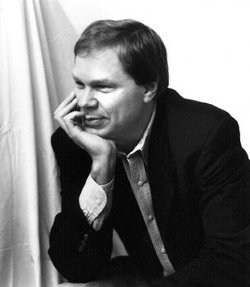Richard Dooling, J.D.
The New York Times article The Rise of the Machines said
“‘BEWARE of geeks bearing formulas.’ So saith Warren Buffett, the Wizard of Omaha. Words to bear in mind as we bail out banks and buy up mortgages and tweak interest rates and nothing, nothing seems to make any difference on Wall Street or Main Street. Years ago, Mr. Buffett called derivatives ‘weapons of financial mass destruction’ — an apt metaphor considering that the Manhattan Project’s math and physics geeks bearing formulas brought us the original weapon of mass destruction, at Trinity in New Mexico on July 16, 1945.In a 1981 documentary called ‘The Day After Trinity’, Freeman Dyson, a reigning gray eminence of math and theoretical physics, as well as an ardent proponent of nuclear disarmament, described the seductive power that brought us the ability to create atomic energy out of nothing.
‘I have felt it myself,’ he warned. ‘The glitter of nuclear weapons. It is irresistible if you come to them as a scientist. To feel it’s there in your hands, to release this energy that fuels the stars, to let it do your bidding. To perform these miracles, to lift a million tons of rock into the sky. It is something that gives people an illusion of illimitable power, and it is, in some ways, responsible for all our troubles — this, what you might call technical arrogance, that overcomes people when they see what they can do with their minds.’
The Wall Street geeks, the quantitative analysts (‘quants’) and masters of ‘algo trading’ probably felt the same irresistible lure of ‘illimitable power’ when they discovered ‘evolutionary algorithms’ that allowed them to create vast empires of wealth by deriving the dependence structures of portfolio credit derivatives.”
Richard Dooling, J.D. was the author of this article and is an American novelist and screenwriter. He is best known for his novel White Man’s Grave, a finalist for the 1994 National Book Award for Fiction, and for co-producing and co-writing the 2004 ABC miniseries Stephen King’s Kingdom Hospital.
Richard’s first novel, Critical Care (1992), was made into a 1997 movie of the same title, directed by Sidney Lumet and starring James Spader and Kyra Sedgwick. His next three novels — White Man’s Grave (1994), Brain Storm (1998), and Bet Your Life (2002) — were all New York Times Notable Books.
In conjunction with Kingdom Hospital, he also wrote The Journals of Eleanor Druse (2004), writing as Eleanor Druse, a character in the miniseries. His short story Bush Pigs was read as part of Selected Shorts, a program produced by Symphony Space in New York and aired on NPR. The performance was later included on the CD Getting There from Here, a compilation of listeners’ favorites from the program.
His nonfiction book Blue Streak: Swearing, Free Speech, and Sexual Harassment (1996) is an examination of the social and legal implications of profane speech. In Rapture for the Geeks: When AI Outsmarts IQ (2008) he explores the implications of machine intelligence overtaking human intelligence. He has also written op-ed pieces for The New York Times, The Wall Street Journal, and The National Law Journal.
Richard was born in Omaha, Nebraska, and is a graduate of Saint Louis University (1976) and Saint Louis University School of Law (1987). He has been a practicing attorney and developer of web-based legal tools for the St. Louis firm Bryan Cave. Richard also teaches at the University of Nebraska College of Law.
Read The Wizard Drops the Curtain, The Risk Not Taken, A Fraud by Any Other Name, Why Sex Isn’t Private Anymore, Unspeakable Names, and Making Criminals of Us All.
